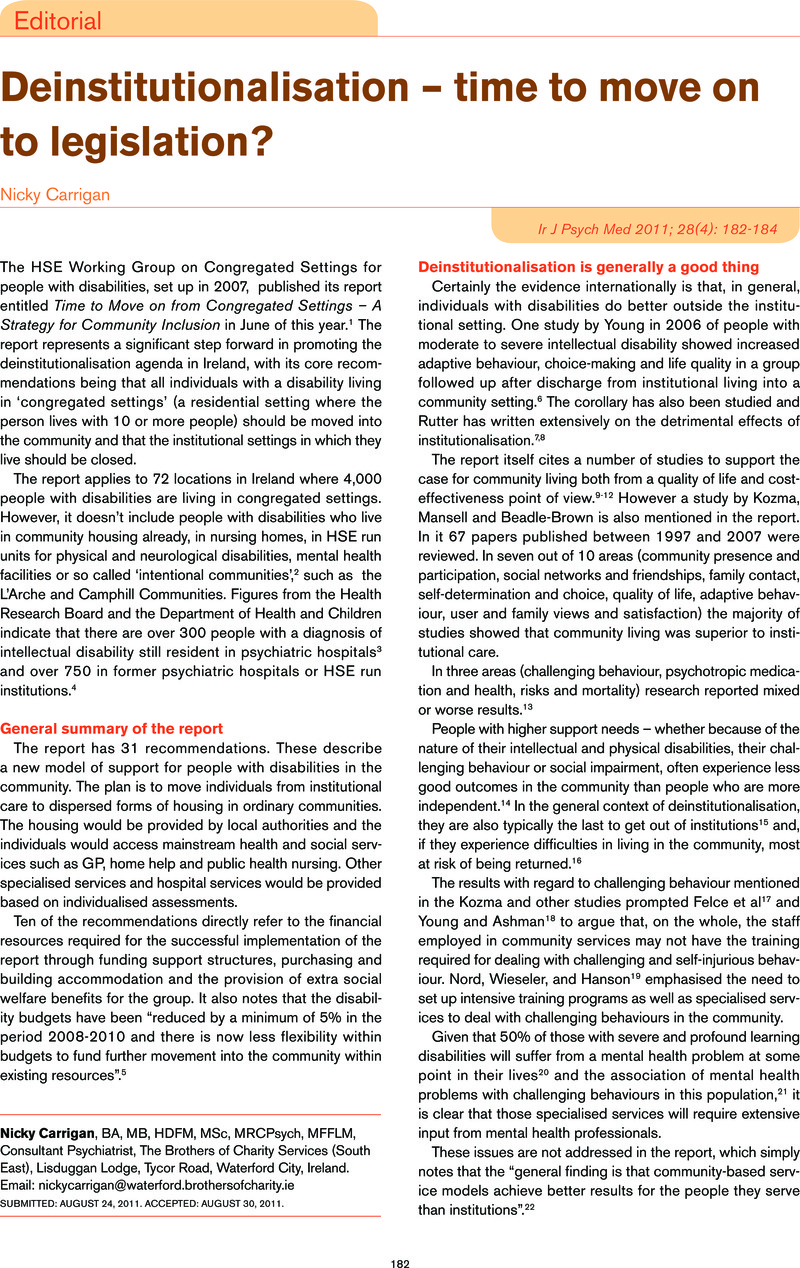Crossref Citations
This article has been cited by the following publications. This list is generated based on data provided by Crossref.
Kelly, Brendan D
2012.
The Irish Journal of Psychological Medicine and the College of Psychiatry of Ireland.
Irish Journal of Psychological Medicine,
Vol. 29,
Issue. 1,
p.
3.
김진우
2018.
Implication learnt form The History of Deinstitutionalisation for Disabled People in the UK - Centred on Living in the Community and Enhancement of Subjectivity of disabled people -.
Korean Journal of Social Welfare,
Vol. 70,
Issue. 3,
p.
7.
Hanlon, Niall
2024.
Relational justice and relational pedagogy in professional social care work.
Social Work Education,
Vol. 43,
Issue. 3,
p.
570.



